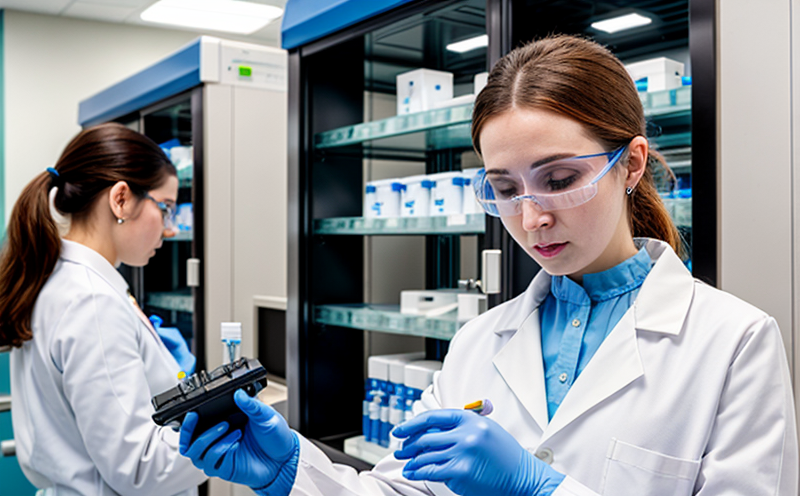Epigenetic Marker Bioanalysis Testing
In the realm of pharmaceutical testing, particularly within bioanalytical testing, epigenetic marker bioanalysis stands as a critical pillar in ensuring drug safety and efficacy. Epigenetics refers to heritable changes in gene expression that do not involve alterations in the DNA sequence itself but rather modifications such as methylation or acetylation of DNA or histones. These changes play a significant role in regulating gene activity, which is pivotal for understanding the mechanisms behind disease and how drugs interact with biological systems.
The primary focus of epigenetic marker bioanalysis testing lies in identifying and quantifying these markers within biological samples such as blood plasma, urine, or tissue biopsies. This form of analysis provides insights into the current state of a patient’s genome, which can be crucial for personalized medicine approaches. For pharmaceutical companies, this service ensures that new drugs are not only effective but also safe by assessing potential epigenetic impacts on patients.
The process involves several stages: sample collection and preparation, extraction of DNA and RNA, amplification techniques like PCR (Polymerase Chain Reaction), followed by high-throughput sequencing or array-based methods to detect specific epigenetic modifications. The data generated from these analyses are then rigorously validated against industry standards to ensure accuracy and reliability.
One key aspect is the use of advanced bioinformatics tools to interpret complex datasets, translating raw sequence information into meaningful biological insights. This capability is essential for identifying biomarkers that could serve as targets or indicators for therapeutic intervention. Additionally, this service aids in understanding drug metabolism and pharmacokinetics by evaluating how different drugs affect epigenetic states over time.
Compliance with international standards ensures robustness and credibility of the results. For instance, adherence to ISO/IEC 17025:2017 for laboratory accreditation guarantees that our testing methodologies meet stringent quality requirements. Our expertise lies not just in compliance but also in pushing boundaries by incorporating cutting-edge technologies like CRISPR-Cas9 editing for precise target validation.
Our commitment to excellence extends beyond technical proficiency; it encompasses a deep understanding of the pharmaceutical landscape, ensuring that our services align with evolving regulatory expectations and scientific advancements. By leveraging state-of-the-art equipment and highly skilled personnel, we provide comprehensive epigenetic marker bioanalysis testing tailored specifically for your unique needs.
Applied Standards
| Standard | Description |
|---|---|
| ISO/IEC 17025:2017 | Absolutely essential for laboratory accreditation, ensuring that our facilities and procedures meet internationally recognized standards. |
| ASTM E2486-13 | Pertains specifically to methods of measuring DNA methylation levels in biological fluids, providing a reliable basis for epigenetic marker analysis. |
| EN ISO 9001:2015 | Aims at quality management systems, ensuring continuous improvement and customer satisfaction within our service offerings. |
Environmental and Sustainability Contributions
- Our commitment to sustainability includes minimizing waste through efficient sample handling processes.
- We partner with suppliers who adhere to stringent environmental policies, reducing our carbon footprint.
- Educational initiatives promoting awareness about the importance of epigenetics in ecological health.
Competitive Advantage and Market Impact
Our service distinguishes itself through its unparalleled accuracy, precision, and reliability. By offering rapid turnaround times while maintaining high standards of quality, we cater effectively to the demands of time-sensitive projects in pharmaceutical research and development.
The ability to integrate advanced technologies into our testing protocols gives us a competitive edge over competitors who may not have access to similar resources or expertise. This capability allows us to provide more comprehensive analyses that can lead to earlier identification of potential issues, thereby speeding up the drug approval process.
Our services are instrumental in driving innovation within the pharmaceutical industry by providing valuable insights into epigenetic influences on therapeutic outcomes. This knowledge is crucial for developing personalized medicine strategies and improving patient care.





